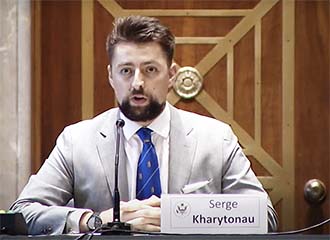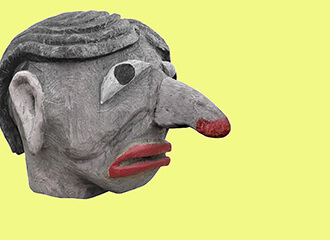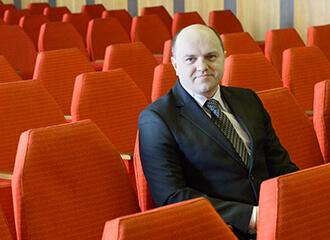На русском языке:
Мнение. Татьяна Щитцова ответила на предложение художника Клинова сознательно заключить «социальный контракт с Лукашенко»
На беларускай мове:
Меркаванне. Таццяна Шчытцова адказала на прапанову мастака Артура Клінава пра «пачатак дыялогу»
Tatiana Shchyttsova, Dr. habil. in Philosophy, Sviatlana Tsikhanouskaya’s representative on Education and Science, professor of the European Humanities University (Vilnius), responded to the proposal of the artist Artur Klinov to «start a dialogue» with the regime, about which he has repeatedly spoken. Shchyttsova analyzes his proposal for a social agreement and other statements.
In his last interview with the German publication Süddeutsche Zeitung, Artur Klinov expressed several thoughts. For example: «For decades, we, the old dissidents, the traditional intelligentsia, have worked to change society. We have created cultural institutions, promoted civil society, prepared a new way of thinking. But the outbreak of the revolution destroyed all our efforts«. Klinov also says that «a dialogue can be a way out of the dead end, and both sides, Lukashenko and his opponents, will have to yield. How should it be after the crimes, after all the suffering? And wouldn’t that be an admission that the revolution had failed? «One way or another. Only the counter-revolution remained«».
We quote the words of Tatiana Shchyttsova unchanged.
Artur is my friend, but the truth is worth more…
Comments on the new «dialogue» proposal
To begin with, it is necessary to pay tribute to Artur: two of his publications (one, two) with the proposal to «start a dialogue» prompted a large number of people to speak out – both in the country and outside it – as a result of which a trend clearly emerged, which can be figuratively defined as a wave of the general outrage. Thus, Artur’s statement became an occasion, firstly, to activate self-reflection in our civil society and, secondly, to manifest a certain unity of civil position. This is important in the context of large-scale repressions, general frustration and uncertainty (the prospect of a close exit from the crisis is not foreseeable). Society at the moment does not have the resources to mobilize resistance for public or underground projects, but it does not allow – does not legitimize by silence – positions that diverge from the basic attitudes of the protest movement. It can be said that thanks to Artur’s publications, the basic «signs of life» of the protest community appeared — synchronous reaction to unacceptable stimuli.
Let us now focus on a critical analysis of the offer made.
Subjunctive position
From the point of view of general logic, Klinov’s reasoning is built on the use of the subjunctive. The essence of his position can be summarized in the following reasoning: «If nothing had happened, then there would have been no crisis and the country would have moved further in the right direction, so it is necessary to act in such a way to return to this direction as soon as possible («return to normality»), ergo, it is necessary to negotiate with the authorities».
Such a subjunctive position is another way for getting stuck «in the past, which did not exist» (another way was considered here).
Such a sticking is a symptom of trauma and it is understandable for a human. Obsessive regrets like «if nothing had happened» are a natural regressive movement of the psyche, examples of which are now found everywhere. The question is, is such a position the right starting point for political analysis and strategy development? In my opinion, it is not. Both should proceed from the actual situation – from what happened, because what happened radically changed the political landscape of our society.
What has happened makes it impossible to return to normality, but requires the construction of a new normality based on the reform of the power system. Formally, both the Kremlin and the regime are showing an understanding of this by promoting the draft of a new constitution that presupposes the redistribution of power. At the same time, it is obvious to everyone that the regime has an interest except in creating the illusion of such a redistribution.
Moreover, the facts suggest that we have entered a phase when the repression machine has engaged in targeted purges within the state system itself. This is another clear symptom of a shift towards totalitarianism — in addition to the official statement «we will whittle down everyone….». What is the author guided by when offering a «dialogue» in this situation? I mean: what grounds are there to assume the ability to «dialogue» on the side of the repressive apparatus, which has taken a tough course to consistently exclude dissent from the social space (through intimidation, arrests and forced emigration)?
There is also a reason to think about the word «deadlock», which the author uses. We have reached a deadlock because, due to a fatal combination of circumstances, we were brought into the wrong rut, — this is about the course of Klinov’s thought. He wants to make everyone – both the authorities and the protest community — regret what happened as a tragic breakdown, which we must now all try to neutralize by breaking the stalemate via new social contract. In connection with such a non-trivial train of thought, it seems to me useful to ask a question: did the participants of the Polish Solidarity think about each next year of their protracted underground confrontation in terms of a «deadlock» that should be regretted? The question also arises: how to reconcile the voiced proposal of a new social contract with messages from our political prisoners who regularly write from prisons that they do not regret anything and encourage us not to lose faith?
Klinov’s argument that a «dialogue» is needed to end repression and preserving sovereignty sounds noble, but at the same time, on the one hand, naive, on the other – speculative. This is wishful thinking with questionable moral implications, because under the pretext of good goals, it is proposed to return to the format of a social contract with the regime, that is, «pretend» as if nothing really happened.
New social contract
It seems to me that the author loses sight of the fact that the very concept of a social contract has a significantly different meaning depending on whether it is applied to the pre-electoral period or to the current situation.
The social contract on which our former relatively peaceful coexistence with the regime was based (political passivity/loyalty in exchange for basic social goods) was not a real political action. It was an imaginary principle that was not universally realized. At the same time, the existing social order functioned and reproduced precisely due to the fact that the most diverse social actors in their behavior corresponded to the pragmatic expediency of this exchange. Most citizens did not even reflect on this matter. Without realizing it, we simply lived in accordance with the described model of the contract, adapting to the specifics of the authoritarian state system.
This state of affairs in general corresponded to the classical theory of the social contract (Hobbes, Locke, Rousseau), which also did not suppose any real act of concluding an agreement. This theory conceptualized the phenomenon of the state from the perspective of the individual and presented the state as the result of a contract between individuals. It did not mean that any real state had arisen or could arise in this way.
The contract was conceived as a kind of fictitious ideal with which the state must conform (citizens undertake to comply with the laws / the state undertakes to ensure security).
The new social contract that Klinov calls for concluding differs from the described model in two fundamentally important senses at once:
- First, it must be a reflexive and meaningful contract – we must consciously take this step. The contract must be our conscious political choice.
- Secondly, this contract is conceived not from the perspective of the individual, but from the perspective of civil society, which was formed in 2020 as a new political entity that disagrees with the current regime.
Klinov advises this new political community of citizens to appeal to the authorities with the proposal «make peace, not war»: we do not encroach on the power – you return peace. Thus, trying to think pragmatically, he actually calls for a return to the model of «Render unto Caesar that which is Caesar’s», but this time we must do it together and quite consciously.


